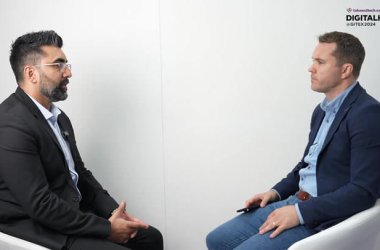 Sascha Giese, Technical Evangelist for Observability at SolarWinds, on how the company helps to increase the value of IT departments for the smooth and efficient running of businesses.
Sascha Giese, Technical Evangelist for Observability at SolarWinds, on how the company helps to increase the value of IT departments for the smooth and efficient running of businesses.
Can you outline to our readers how your company delivers cutting-edge technology that delivers the ‘experience’ that your customers and end-users demand in the experience economy?
We live in a time when competitive advantage comes through innovation, which usually results from a well-working IT department. IT is the backbone of almost every business, and customers depend on it. They want everything right now, around the clock, and from everywhere. Customers don’t have patience, as they always have other options: your competition.
If a platform doesn’t perform, it isn’t good for the business.
We help IT teams discover anomalies before they become problems. And if a severe incident appears, they can rely on our solutions to keep the service levels low. Instead of wasting time on reactive firefighting, our customers can focus more on optimising and innovating.
Long story short: Previously, IT supported the business. Nowadays, IT runs the business. And we help increase the value of the IT department.
ChatGPT and Generative AI, in general, are all the rage, and these new AI integrations have been tipped to fundamentally reshape all major industries as we know them. What is your view on Generative AI – are you excited by the new opportunities that it will present, what do you believe are the most compelling use cases?
There are many concerns regarding generative AI, and while some are valid, most are just based on human nature; we’re a little cautious about new things that we don’t fully understand. It depends on the use cases.
Let’s quickly look at a few examples.
Everyone who has had to contact customer services to resolve a problem knows that waiting times can be a pain. For many years, some businesses have asked for essential data before connecting the customer to a human, so account or order numbers are already available when an agent connects.
Chatbots are just an evolution of this, which we will see much more of in the future. It doesn’t harm.
A bit more complicated are situations when AI makes decisions for humans. Think of recruitment. Recruitment agencies have used filters and automation for a while now, but the element of AI is relatively new. It feels weird for humans if a machine decides if a CV is being forwarded to the next step or an auto-response arrives at the applicant’s inbox. This area needs to be controlled by either local governments or, even better, independent global organisations.
There has been a swathe of digital and cloud transformation projects in the Middle East over the last 3-5 years. However, many enterprises have struggled with the demands of cloud transformation, especially legacy-heavy players. What are the key processes/technologies that enterprises need to adopt to ensure a successful transformation journey?
The Middle East is a special place when it comes to this topic. Some enterprises, particularly finance and health care, are on legacy backbones, which won’t go away quickly. Their challenge is to stitch together old and new.
But in the Middle East, organisations are more willing to invest in something more cutting-edge. If something promises to be beneficial to the business, many organisations are more comfortable to try and invest in an idea. If it doesn’t work, it’s at least a lesson learned, but quite often it pays out. This is a good thing, as it helps with the much-needed innovation.
On the other hand, sometimes it seems that businesses are following a hype train either too quickly or stay on for too long; look at failed tech like NFT or tech that still looks for its purpose, like blockchain.
As pointed out already, AI promised a lot in the past eight years, but it took until late 2022 before we saw the first use cases that made sense and showed a faster return on investment. This is something businesses should pay attention to, not only to save costs but to elevate their services to the next level.
This supplement is titled Tech Vision, so with that in mind, what do you think the future holds for the IT and tech sector across the Middle East, what will be the key trends and technologies that will really champion change over the next ‘digital decade’?
Most prominent is the progress of AI. According to McKinsey estimates, it comes with an unreal business value of US$4.4 trillion.
Another topic that gets increasingly important, even if it’s not a “trend,” is Green IT. IT, or tech in general, has to become more sustainable and environment-friendly. It’s a vast topic that starts with green coding and continues over energy-efficient hardware, leading to a changed mindset.
Regarding the broader tech sector, I would put bioengineering and nanotechnology on top of the trends for the next decade. But that’s a conversation for another day!





